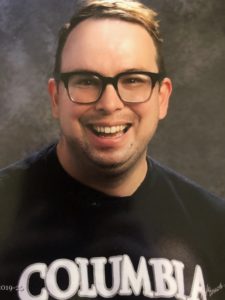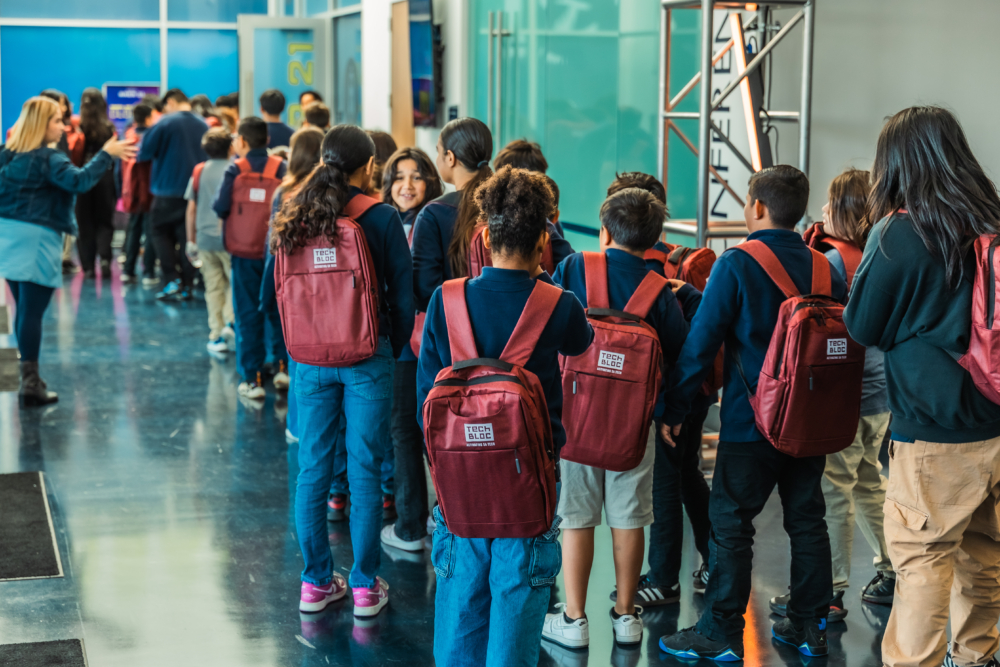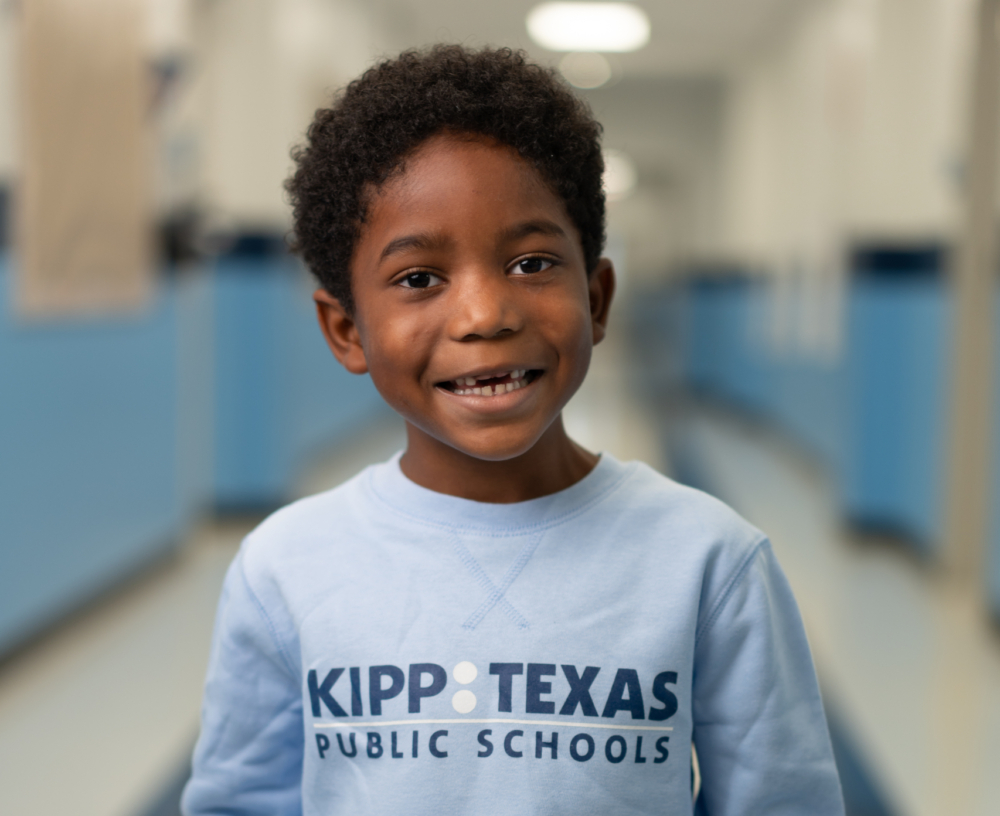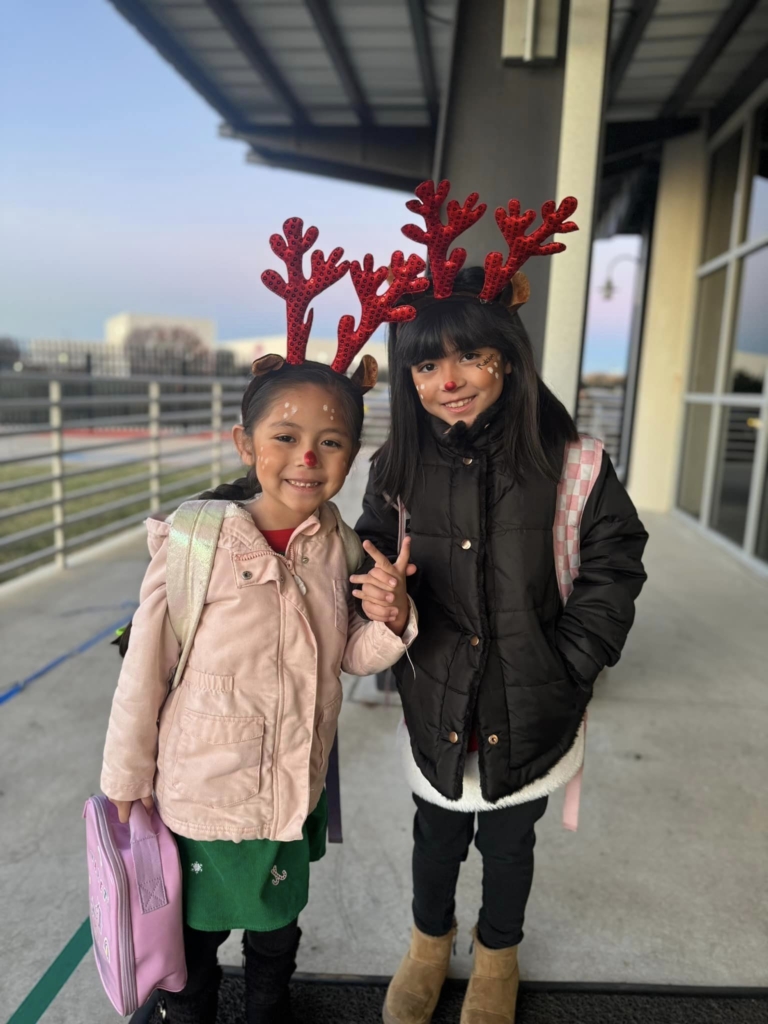What does the KIPP Texas Public Schools special education program look like? Why are KIPP Texas special education teachers passionate about their work? And what does it take to be an effective special education teacher in our schools?
We recently sat down with teachers Dominique Hayward, Melissa Carpenter, and Michael Epstein to learn more about one of the most unique and rewarding disciplines within education. Our conversation is edited for clarity and length.




(From left, Dominique Hayward, Melissa Carpenter, Michael Epstein, y Anupama Singh)
Why are you passionate about your work?
Dominique Hayward, Special Education Coordinator, KIPP Houston High School: One of the first students I taught had autism, and we worked together for three years. I became like a member of his family. And he started making gains. Now, he’s in his senior year of college, away from home. You want to know why I do this work? That’s why.
Melissa Carpenter, Special Education Teacher, KIPP Austin Obras: To me, it’s a constant puzzle of figuring out how to unlock a student’s potential. There might be a behavior or communication barrier, but I know that there’s a kid in there underneath those layers who desperately wants to communicate and connect.
Michael Epstein, Special Education Teacher, KIPP Somos High School: Honestly, I think special education students are the most fascinating people in a school. My students are exciting and dynamic people; they seek to question everything, and that is the marking of a deep and rich mind. I spend my day learning with fascinating humans.
Anupama Singh, Special Education Team Lead, KIPP Destiny Elementary: Every situation is different, and whether a student must overcome issues with motivation or processing delays, I love the challenge of finding the strategy that works specifically for them.
Why does KIPP implement an inclusion model of Special Education?
Michael: A student who receives special education services learns from their teacher, but they also learn so much from their peers. So if we take a student out of the classroom, we’re ignoring the contributions that other students make, which can lead to some lasting harm. We want our students to be in the least restrictive environment possible because we firmly believe that they get the best education among their peers.
Anupama: Learning is a life skill, and we want every student to have the strategies they need to learn when a teacher isn’t by their side. As they grow older, they will need to know how to stay organized, how to ask clarifying questions, and how to help themselves. Inclusion helps our students build those skills that are necessary beyond high school.
How do you collaborate with families?
Michael: Oh, there is nothing like a KIPP family. Our KIPP parents are wonderful and are driven and motivated to do the right thing for their kids. We always start with getting the parent’s perspective: What do they want? What feedback do they have? Intentionally elevating their voice profoundly shapes our meetings: it sends a strong signal that we need them, we’re here to work together, and we are creating a plan that everyone believes is best for their kiddo. I believe very strongly in the committee process of professionals coming together as a team to work things out for kiddos, and that’s very alive here at KIPP Texas.
Dominique: You know, there are a lot of laws around special education, and with that comes a lot of legal jargon, and that can be really overwhelming and intimidating for families. So what I try to do is establish relationships and keep parents informed. Parents want to be involved with their kids, and sometimes they don’t know the process or even what questions to ask. It’s our role to help guide them through this, so they are empowered at every step.
What does it take to be an excellent special education teacher at KIPP Texas?
Dominique: Flexibility: Students change, and plans have to adjust. Coachability: We have experts at KIPP Texas who know what to look for and how to get results, and you need to be able to take feedback. Patience: Progress with students rarely happens instantly, and everything takes time.
Michael: We serve students best by creating rich and powerful goals. And that comes from data, not speculation. So you need to be able to see what a student can do and then create a plan rooted in who that student is and where they are going.
What does a typical day look like for a KIPP Texas Special Education teacher?
Dominique: In the morning, I’m in classrooms visiting with students and teachers, supporting in any way I can. I then go into content meetings to familiarize myself with all curriculum and what supports may be needed. I like to eat lunch with students because that’s when we can sit together and talk, and after that, I take thirty minutes to breathe and regroup so I can be at my best in the afternoon, for Admission, Review, and Dismissal (ARD) meetings, meetings about interventions, and paperwork.
What makes KIPP Texas special?
Melissa: At so many schools, there’s a feeling among staff that some kids are a special education teacher’s responsibility and not their own. Not at KIPP Texas. There is an openness here, a willingness by every teacher to grow, learn new strategies, and create an inclusive school environment where every student can learn.
Dominique: This is a place where kids don’t get overlooked. Our classrooms are equitable. We help students get through college and prepare for their future. And not only that, KIPP Texas is invested in student’s lives and helping them become productive citizens.
Michael: I admire our students so much. I admire their courage to be their authentic selves; I admire their courage to stand up for who they are; I admire their passion for questioning authority and not conforming. And I really, really admire the way that our students are able to step out, be themselves, and create a world wholly for themselves.
Anupama: In a traditional school district, Special Education programs are set in stone, and if something isn’t working, you have to go through a lot of different channels and may or may not even be heard. Sometimes you don’t even know the people who make the decisions! At KIPP Texas, everyone has access to everyone. We’re a team of professionals that work together and make decisions with our students’ best interests in mind.
_________
At KIPP Texas Public Schools, we believe all students should develop the skills and confidence they need to lead fulfilling lives, and we are proud of our Special Education team’s important role in this work.


